Introduction to Tokai University
Overview
Tokai University is a famous private comprehensive university located in Shibuya, Tokyo, Japan. It was founded in 1943. The school was originally named Aeronautical Science School. In 1946, it was restructured into a university and officially named Tokai University. Tokai University has a high reputation in many fields, especially in science and engineering, medicine, and humanities. The school has multiple campuses in Tokyo, Kanagawa Prefecture, Shizuoka Prefecture, etc., providing students with rich learning and research resources.
Campuses
Tokai University has several campuses, the specific addresses are as follows:
Hongo Campus (Shibuya-ku, Tokyo)
Address: 1-20-1 Hongo, Shibuya-ku, Tokyo
Shonan Campus (Fujisawa City, Kanagawa Prefecture)
Address: 1-1 Enoshima, Fujisawa City, Kanagawa Prefecture
Shizuoka Campus (Atami City, Shizuoka Prefecture)
Address: 1-1 Sekitei, Atami City, Shizuoka Prefecture
Sapporo Campus (Sapporo City, Hokkaido)
Address: 1-1 Kita 5-jo Nishi 3-chome, Chuo-ku, Sapporo City, Hokkaido
Educational Philosophy
Tokai University adheres to the educational philosophy of "freedom and creation" (freedom and creation), emphasizing the cultivation of students' independent thinking and innovation abilities. The school is committed to cultivating high-quality talents with professional knowledge and practical abilities through a comprehensive education system, and contributing to the development of society.
Disciplines and Majors
Tunghai University has several faculties and graduate schools covering a wide range of fields:
Faculty of Science and Engineering
Mathematics: Learn the basic theories and application methods of mathematics, and cultivate professionals who can work in scientific research institutions, enterprises and other fields.
Physics: Learn the basic theories and application methods of physics, and cultivate professionals who can work in scientific research institutions, enterprises and other fields.
Chemistry: Learn the basic theories and application methods of chemistry, and cultivate professionals who can work in scientific research institutions, enterprises and other fields.
Mechanical Engineering: Learn the basic theories and application methods of mechanical engineering, and cultivate professionals who can work in manufacturing, R&D institutions and other fields.
Electrical and Electronic Engineering: Learn the basic theories and application methods of electrical and electronic engineering, and cultivate professionals who can work in power companies, electronic companies and other fields.
Information Engineering: Learn the basic theories and application methods of information engineering, and cultivate professionals who can work in information technology companies, scientific research institutions and other fields.
Medical Department
Medical Department: Learn the basic theories and practical methods of medicine, and cultivate doctors who can work in medical institutions.
Pharmacy Department
Pharmacy: Learn the basic theories and practical methods of pharmacy, and cultivate pharmacists who can work in pharmacies, pharmaceutical companies and other fields.
Department of Literature
Japanese Literature: Learn the basic theories and practical methods of Japanese language and literature, and cultivate professionals who can work in the fields of education, culture, and media.
English and American Literature: Learn the basic theories and practical methods of English language and literature, and cultivate professionals who can work in the fields of international communication, translation, and education.
Department of Economics
Economics: Learn the basic theories and practical methods of economics, and cultivate professionals who can work in financial institutions, enterprises, government agencies, and other fields.
Department of Business Administration
Business Administration: Learn the basic theories and practical methods of business administration, and cultivate professionals who can work in enterprises, consulting companies, and other fields.
Department of Law
Law: Learn the basic theories and practical methods of law, and cultivate professionals who can work in law firms, courts, government agencies, and other fields.
Department of Sociology
Social Studies: Learn the basic theories and practical methods of sociology, and cultivate professionals who can work in social surveys, community services, and other fields.
Graduate School
Graduate School of Science and Engineering
Department of Mathematics: Master's and Doctoral Programs
Department of Physics: Master's and Doctoral Programs
Department of Chemistry: Master's and Doctoral Programs
Department of Mechanical Engineering: Master's and Doctoral Programs
Department of Electrical and Electronic Engineering: Master's and Doctoral Programs
Department of Information Engineering: Master's and Doctoral Programs
Graduate School of Medicine
Department of Medicine: Master's and Doctoral Programs
Graduate School of Pharmaceutical Sciences
Department of Pharmaceutical Sciences: Master's and Doctoral Programs
Graduate School of Letters
Japanese Literature Department: Master's course
Department of English and American Literature: Master's course
Graduate School of Economics
Department of Economics: Master's course and doctoral course
Graduate School of Business Administration
Department of Business Administration: Master's course and doctoral course
Graduate School of Law
Department of Law: Master's course and doctoral course
Graduate School of Sociology
Department of Sociology: Master's course
Specialized courses
Faculty of Science and Engineering: Learn the basic theories and applied methods of science and engineering, including mathematics, physics, chemistry, mechanical engineering, electrical and electronic engineering, information engineering, etc.
Faculty of Medicine: Learn the basic theories and practical methods of medicine, including basic medicine, clinical medicine, public health, etc.
Faculty of Pharmacy: Learn the basic theories and practical methods of pharmacy, including medicinal chemistry, pharmacology, pharmacy, etc.
Faculty of Literature: Learn the basic theories and practical methods of literature, including Japanese literature, English and American literature, etc.
Faculty of Economics: Learn the basic theories and practical methods of economics, including microeconomics, macroeconomics, international economics, etc.
Department of Business Administration: Learn the basic theories and practical methods of business administration, including business management, strategic planning, human resource management, etc.
Department of Law: Learn the basic theories and practical methods of law, including civil law, criminal law, commercial law, etc.
Department of Sociology: Learn the basic theories and practical methods of sociology, including social surveys, social policies, community services, etc.
Practical Teaching
Tunghai University attaches great importance to practical teaching, with advanced laboratories and practice bases, providing students with rich practical teaching resources. The school has established cooperative relations with many enterprises and research institutions, providing students with rich internship and practice opportunities. The school also has simulation laboratories, laboratories, studios and other practical platforms, providing students with a platform for practical operation.
International Exchange
Tunghai University actively participates in international exchange programs, has established cooperative relations with universities in many countries, and provides students with opportunities for overseas study and exchange. The school has an International Student Office to provide comprehensive support and services for international students.
Ranking
Tunghai University has a high reputation in many fields, especially in science and engineering, medicine, humanities and other fields. The school performs well in terms of employment rate and has been rated as one of the universities with higher employment rates among private universities in Japan.
Cost
Admission fee: about 200,000 yen
Tuition fee: about 800,000 to 1 million yen per year (depending on the department and subject)
The specific cost may change, so it is recommended to contact the school directly for the latest information.
Campus
The campus of Tokai University is beautiful and well-equipped, including modern teaching buildings, laboratories, libraries and sports facilities. The school also has student dormitories to provide convenient living conditions for out-of-town students.
Contact information
Tel: +81-3-3464-6111
Fax: +81-3-3464-6112
Email: info@tokai-u.jp
Other information
Internship opportunities: The school has established cooperative relationships with many companies and research institutions, providing students with abundant internship and practice opportunities.
Employment support: The school has a career guidance center to provide students with employment consultation, resume writing guidance and interview skills training to help students find employment smoothly.
Scholarship system: The school has established a variety of scholarship systems to help students reduce their financial burden.
-
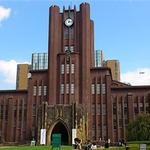
The University of Tokyo
-
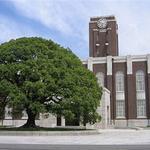
Kyoto University
-
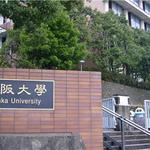
Osaka University
-

Waseda University
-

Hitotsubashi University
-
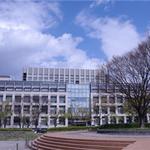
Nagoya University
-
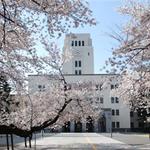
Tokyo Institute of Technology
-
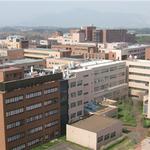
University of Tsukuba
-

Keio University
-
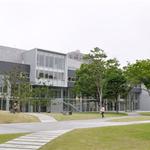
Tohoku University
-

Mesoamerican University
-

Istmo University
-

Mariano Galvez University of Guatemala
-

Regional University of Guatemala
-

Galileo University
-

Francisco Marroquín University
-

Rafael Landívar University
-

University of the Valley of Guatemala
-

University of San Carlos of Guatemala
-

Technological Institute of Tlaxcala Plateau
-

Golfo University
-

Technological University of South Sonora
-

Technological University of Huejotzingo
-

Tizimín Institute of Technology
-

Chilpancingo Institute of Technology

